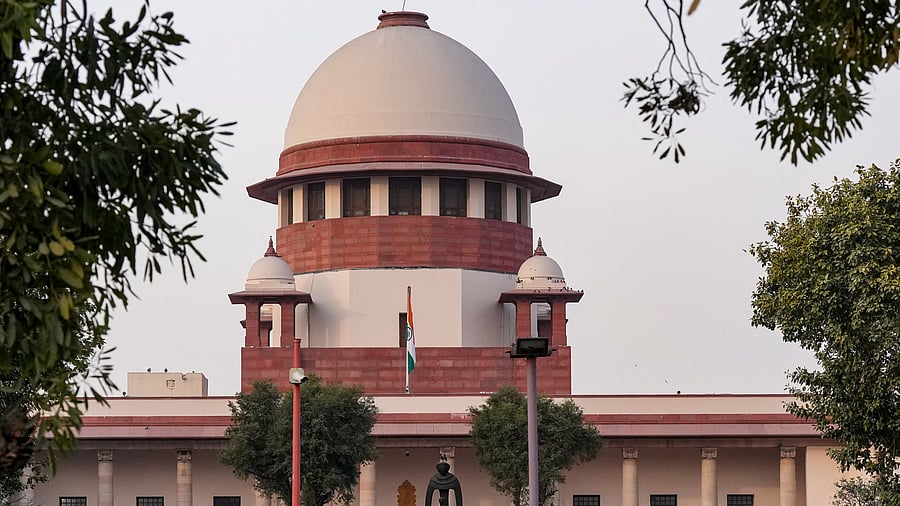
Supreme Court of India
Credit: PTI Photo
New Delhi: The Supreme Court has said that stamp vendors across the country, by performing an important public duty and receiving remuneration from the government, are undoubtedly public servants within the ambit of Section 2(c)(i) of the Prevention of Corruption Act.
A bench of Justices J B Pardiwala and R Mahadevan said the “public servant” as defined under the PC Act should be given a purposive and wide interpretation so as to advance the object underlying the statute.
Allowing an appeal by Aman Bhatia, a licensed stamp vendor in Delhi against his conviction for seeking Rs 2 as bribe for stamp paper of Rs 10, the court said the nature of duty being discharged by a person assumes paramount importance when determining whether such a person falls within the ambit of the definition of public servant.
"A person would be a public servant if he is in the service; or in the pay of the government; remunerated by fees or commission for the performance of any public duty. All three categories are independent of each other. There may be cases where more than one of the categories are applicable and “or” may be read as “and”," the bench said.
The court opined the legislature has used a comprehensive definition of “public servant” to achieve the purpose of punishing and curbing the growing menace of corruption, so the definition should be given a purposive and wide interpretation so as to advance the object underlying the statute.
In the May 2, 2025 judgment, authored by Justice Pardiwala, the court examined the core legal issue whether the stamp vendors would qualify as public servants.
It, however, acquitted the appellant, finding the prosecution failed to prove the demand beyond the reasonable doubt in view of material inconsistencies in testimonies of the complainant and panch witness.
The appellant was alleged to have been apprehended in 2003 by sleuths of Anti Corruption Branch from Sub Registrar's office at Janakpuri Delhi here with recovery of Rs 12 for a stamp paper of Rs 10.
The bench, however, said, "Mere possession and recovery of tainted currency notes from a public servant, in the absence of proof of demand, is not sufficient to establish an offence under Sections 7 and 13(1)(d) of the PC Act respectively".
The court stressed that without evidence of demand for illegal gratification, it cannot be said that the public servant used corrupt or illegal means, or abused his position, to obtain any valuable thing or pecuniary advantage.
It highlighted the proof of demand is essential for conviction since mere recovery of money is not sufficient.
In the case, the bench found, the appellant was lawfully entitled to receive Rs 10. Since, the Rs 10 note itself was tainted it becomes difficult to determine whether the change in the colour of the solution was triggered by the handling of the Rs 10 note or the Rs 2 note.
Hence, the mere turning of the solution pink cannot, by itself, establish the acceptance of illegal gratification, it added.
The court also held since the prosecution failed to establish beyond all reasonable doubt, the demand of bribe and its acceptance, there was no question of a presumption under Section 20.
"We find ourselves compelled to conclude that it would be entirely illegal to uphold the conviction of the appellant," the bench held.
